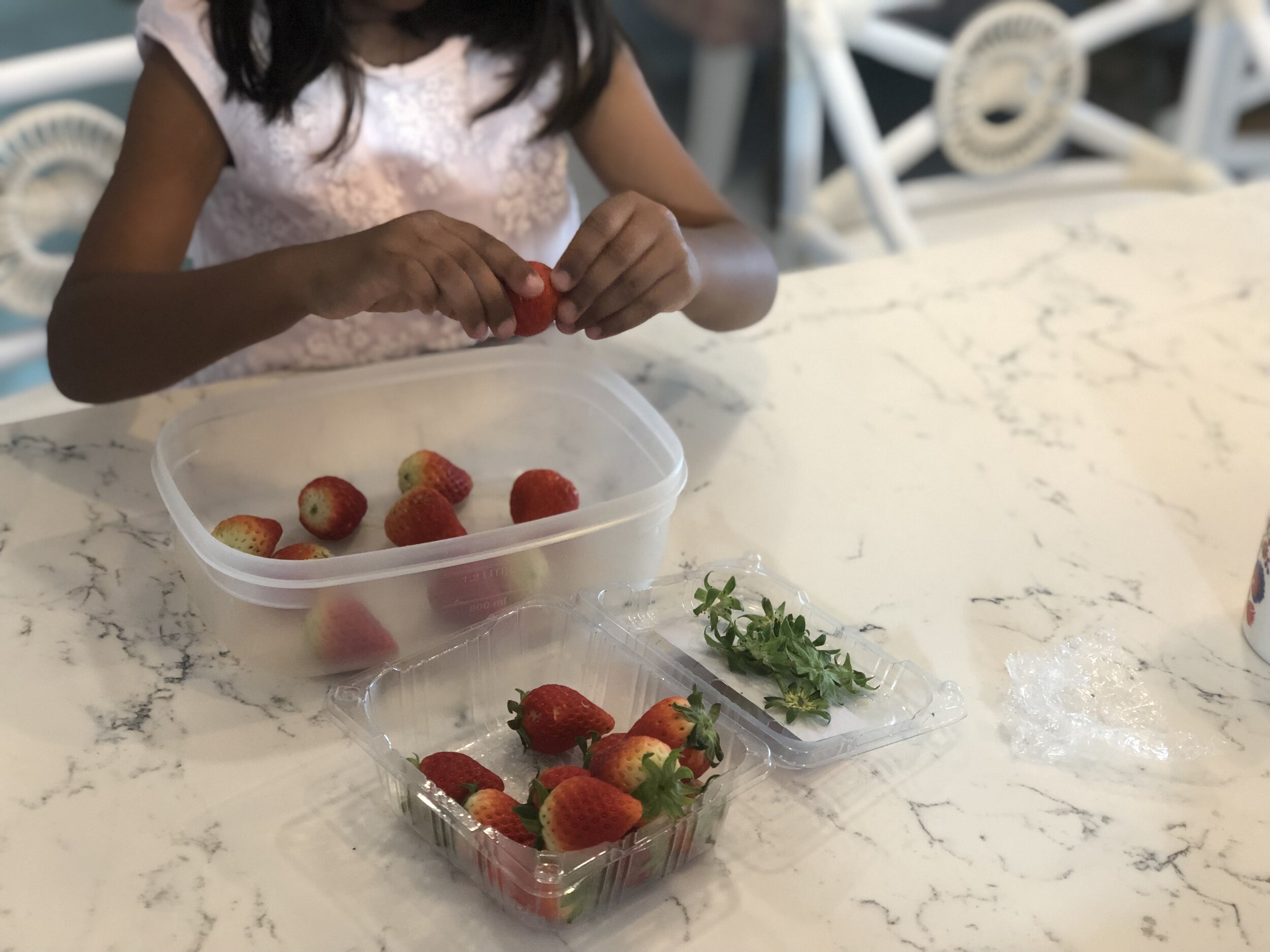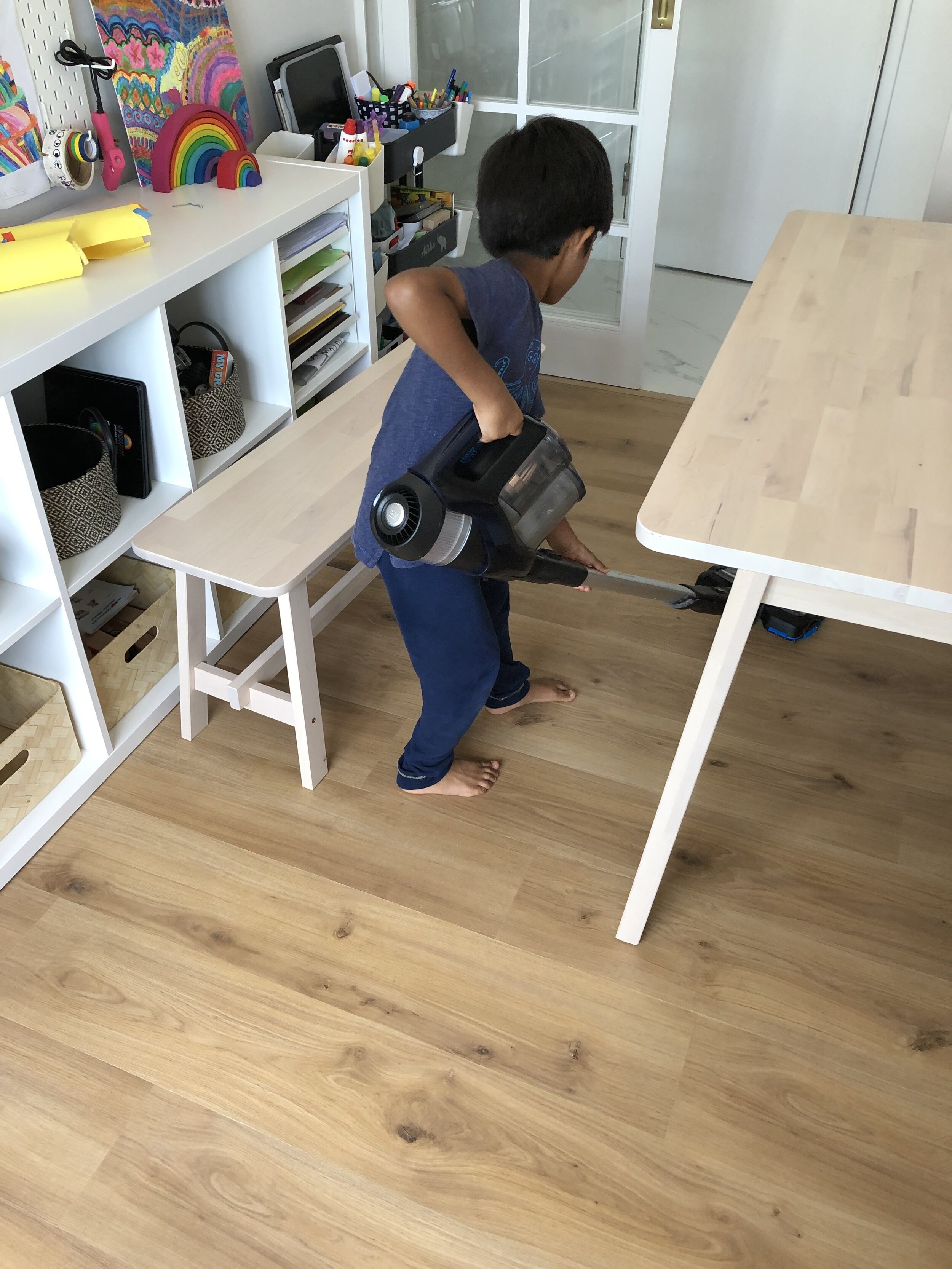Why I Help My Kids Help Themselves
“If teaching is to be effective with young children, it must assist them to advance on the way to independence. It must initiate them into those kinds of activities which they can perform themselves and which keep them from being a burden to others because of their inabilities. We must help them to learn how to walk without assistance, to run, to go up and down the stairs, to pick up fallen objects, to dress and undress, to wash themselves, to express their needs in a way that is clearly understood, and to attempt to satisfy their desires through their own efforts. All this is part of an education for independence”. - Dr Maria Montessori
After I completed my online Montessori training course provided by KHT Montessori in 2015, I began to understand the philosophy behind Montessori education and how to incorporate it in my parenting approach and lifestyle while raising my children. At first, I was very enthusiastic in setting up an almost school-like environment in my children's room. I had beautiful shelves with age-appropriate activities on wooden trays and enjoyed watching my children working on each one with focused attention. I even had "practical life skills" trays on the shelves for them (pouring, transferring, cutting wooden fruit and so on) . It was all new to me at the beginning and hence exciting but I realised that I was missing the whole point of these activities. Although they were developing fine motor skills and building their confidence, teaching and modeling relatable activities of daily living should have occurred on the side to complement my tray activities.
Why, might you ask? When a child is given opportunities from a young age to be a part of their family's shared responsibilities, he/she feels like they have a part to contribute in their family's well-being. This teaches them empathy (caring for other's needs secondary to their own), how to be self-reliant and independent when they are adults and boosts their morale and self-esteem. Age-appropriate practical life activities also help children develop a sense of order, ownership and pride in their work.
I've never forced my children to help me when I'm getting stuff done around the house. At the beginning all I did was model what I thought they could do (for e.g., making their beds, setting the table for our meals, wiping the table down after we were done eating, carrying dirty dishes to the sink). I would follow up with a "It would be so helpful if you could do so and so" and leave it there. If I did see them help out, I would say "That was really helpful when you tidied your table" or "You are so thoughtful when you put away your sister's laundry in the basket".
As a family, my husband and I place a strong emphasis on helping out before the kids can play, read or do whatever it is they wished to do. We don't have a reward system in the house for completing their tasks as I'm not sure that would help them in the long run. We supervise as required and help them out when necessary of course (without getting in their way)!
We are in the midst of moving houses so I will do a home tour after we move but essentially our home is designed in a way that the kids can independently help around. You'll find step stools near sinks and light switches, their cutlery and plates in low shelves/drawers, cleaning supplies on low hooks and toys (a few out at a time always) organised thematically in baskets so that clean up is easy after play.
Around the time A2 started nursery last year, we gave her an informal introduction to her "chores" every morning step-by-step. I hadn't expected her to remember all of it but she had her older brother modeling what she was required to do to get ready for school. Although most days were good in terms of them completing their tasks before heading out, there were days that some of the steps would be missed resulting in delays and distress. They would ask me, "Mom, what's next that needs to be done?" I needed to put an end to that and provide them with a system that had a built-in control of error (a way for the child to independently check their own work) .
I quickly looked online for printables to make them a visual chart with customised activities they could follow with ease. I found a wonderful resource at The Military Wife and Mom blog that also included blank templates so I could make my own cards! https://themilitarywifeandmom.com/printable-routine-cards-for-toddlers-preschoolers/. I then wrote the card's number at the back so even if the cards were out of order, they could rearrange them themselves.
Both my children are visual learners (quite like me) so this was a massive hit with both of them. I started making a mental list of what they were doing every morning and customised each of the activities on their cards set. I found a local woodworking company (https://touchwoodgui.weebly.com/about-us.html) that uses up-cycled wood (yaay for sustainable products!) to make furniture and toys and got them to custom-make display boards for each of my kids to ‘house’ their activity cards. I've observed them racing to complete their activities and also work as a team when one is falling behind so they can finish their tasks at the same time.
I plan on adding more activities based on their growing needs as well as our family's as they get older. I am heartened to see that they are happy contributing towards helping themselves, each other and their family and hope that they continue to do so.
From my observations and learning from my kids, I would recommend the following:
Look around your home and see it through your child's eyes. Take note of the height of their furniture and accessibility to their materials.
Be patient and keep expectations realistic. I used to get stressed out when my kids took a long time to wear their shoes or every time milk there were messes. I now plan ahead when we need to head out somewhere and involve the kids in the clean up process so that there are valuable lessons learnt.
Start off with just 1-2 simple tasks that your child is already able to do independently (teeth brushing, putting away dirty laundry etc). As they get comfortable taking on more tasks, keep adding age-appropriate activities to their daily routine slowly.
I will sign off by sharing a wonderful checklist that Simone from The Montessori Notebook shared on her blog (if you haven't checked out her blog or followed her on social media, I highly recommend that you do so right away for inspirational tips, ideas and courses on how to bring the Montessori philosophy to your home). I'd love to hear how your little ones help out at home!




